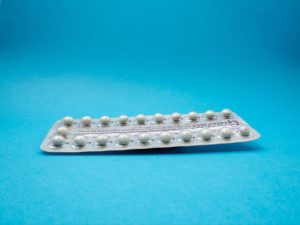
Understanding the Longevity of Retinol Products
Transform your mental health journey with our top practitioners. Speak with a provider today to see what treatment is right for you.
- Appointments any day of the week
- Licensed healthcare providers in your state
- 24/7 patient support
Retinol is a powerhouse ingredient in the world of skincare. Renowned for its remarkable anti-aging benefits and its ability to enhance skin texture, retinol has become a staple in many beauty routines across the globe. As a transformative ingredient, it has earned its place on the shelves of skincare enthusiasts and professionals alike. However, have you ever paused to consider how long your retinol products last and how to maximize their efficacy? In this comprehensive article, we’ll delve into the longevity of retinol products, exploring their shelf life, effectiveness on the skin, and tips to ensure you get the most out of them.
Receive a personalized treatment plan from a medical provider after an online mental health assessment.
What Is Retinol?

Retinol is a derivative of Vitamin A, a vital nutrient known for its role in maintaining healthy skin. When applied topically, retinol works wonders by promoting cell turnover, unclogging pores, and boosting collagen production. This results in smoother, brighter, and more youthful-looking skin, making it an essential component in anti-aging skincare. Retinol is commonly found in various formulations, including serums, creams, and lotions, each designed to address specific skin concerns.
Retinol’s ability to penetrate the skin’s surface and stimulate collagen production makes it a unique ingredient in combating the visible signs of aging. Unlike some skincare ingredients that offer surface-level benefits, retinol works at a deeper level, targeting the underlying causes of skin aging. This makes it a versatile and powerful ally in the pursuit of healthy, radiant skin.
How Long Is Retinol Good For?
Retinol products, like many skincare items, have a finite shelf life. Understanding how long retinol remains effective is crucial to ensuring you’re using it at its most potent and beneficial state. This knowledge not only helps in maintaining an effective skincare routine but also in preventing potential skin irritation from expired products.
Shelf Life of Retinol Products
Generally, retinol products are good for about 6 to 12 months after opening. However, the exact shelf life can vary significantly based on factors such as formulation and packaging. Products housed in air-tight, opaque containers tend to have a longer shelf life because they are better protected from light and air, both of which can degrade retinol. The degradation of retinol can lead to a decrease in its effectiveness, making it crucial to be mindful of storage conditions.
Additionally, the concentration of retinol in a product can also influence its longevity. Higher concentrations may degrade faster if not stored correctly, while formulations with stabilizing ingredients might last longer. Therefore, understanding the specific formulation and following manufacturer guidelines can help you make the most of your retinol products.
Signs Your Retinol Has Expired
Expired retinol may not only lose its effectiveness but can sometimes cause irritation or adverse reactions. Being able to identify the signs of expired retinol is essential for maintaining a safe skincare routine. Here are some indicators that your retinol product may have expired:
- A change in color, especially if it has turned yellow or brown, can signify oxidation.
- A change in texture, such as becoming thicker, separating, or forming clumps.
- An unusual or off-putting odor, which can indicate chemical breakdown.
If you notice any of these changes, it’s advisable to discontinue use immediately. Using expired products can compromise your skin’s health and negate the benefits of your skincare regimen.
How Long Does Retinol Last on the Skin?

When applied to the skin, retinol begins to work immediately, initiating processes that contribute to healthier skin. However, patience is key, as the full spectrum of benefits can take weeks to months to become fully visible. Here’s a breakdown of how retinol works over time:
Short-Term Effects
In the initial weeks of using retinol, you might notice some temporary irritation, such as redness, peeling, or dryness. This is a normal reaction as your skin adjusts to the new active ingredient. During this period, retinol is busy promoting cell turnover and preparing your skin for more significant transformations. It is crucial to approach this phase with patience and allow your skin time to adapt.
To mitigate the initial irritation, consider incorporating retinol gradually into your routine, starting with a lower concentration or using it every other day. This slow introduction can help your skin build tolerance and minimize adverse reactions.
Long-Term Benefits
With consistent use over several months, retinol can significantly improve skin texture and tone. It effectively reduces the appearance of fine lines, wrinkles, and dark spots, contributing to a more youthful complexion. Retinol also helps in refining the skin’s surface, leading to a smoother and more even texture. To sustain these benefits, it’s important to incorporate retinol as a regular part of your skincare routine, ensuring continued improvement over time.
Moreover, the long-term use of retinol can help in preventing future skin damage by promoting healthy cell turnover and collagen production. This preventive aspect makes retinol not only a corrective ingredient but also a proactive one in maintaining youthful skin.
Tips for Maximizing the Longevity of Retinol Products
To ensure you get the most out of your retinol products, it’s essential to follow best practices in storage, application, and combination with other skincare ingredients. Here are some tips to help you maximize their longevity and effectiveness:
Store Properly
Proper storage is crucial for preserving the potency of retinol. Keep your retinol products in a cool, dark place, away from direct sunlight and humidity. Avoid storing them in the bathroom if it tends to be warm and moist, as these conditions can accelerate the degradation process. Consider using a dedicated skincare fridge or a drawer in a cool, dry area for optimal storage conditions.
Use Consistently
For retinol to be effective, consistency is key. Apply it regularly as part of your evening skincare routine. Starting with a lower concentration is advisable if you’re new to retinol, as this can help minimize initial irritation. Gradually increasing the frequency and concentration can help your skin adapt while reaping the full benefits of retinol over time.
Get your anxiety symptoms checked by online healthcare providers at MEDvidi from the comfort of your home.

Get professional help for anxiety from the comfort of your home.
Monitor Expiration Dates
Keep track of the expiration dates of your retinol products. Writing the date you opened the product on the container can help you remember when it’s time to replace it. This simple practice ensures that you’re always using retinol at its most effective and prevents the use of expired products that could irritate the skin.
See a healthcare provider licensed in your state to get personalized anxiety treatment.
Conclusion
Understanding the longevity of your retinol products is essential for ensuring you’re getting the best results from your skincare routine. By storing them properly, using them consistently, and being mindful of expiration dates, you can maximize their effectiveness and enjoy the transformative benefits retinol offers. Whether you’re new to retinol or a seasoned user, these tips will help you maintain a radiant and youthful complexion. Remember, patience and consistency are key when it comes to seeing the full benefits of retinol. With the right approach, retinol can be a powerful ally in your journey to healthier, more youthful skin.
Frequently Asked Questions About Retionol
Can I Use Retinol Every Day?
When you first start using retinol, it’s recommended to apply it every other day or even just a few times a week. This allows your skin to acclimate to the potent ingredient gradually. As your skin builds tolerance, you can gradually increase the frequency to nightly use, provided that your skin does not show signs of irritation. Consistent use is crucial for achieving and maintaining the desired results.
What Is the Best Time to Apply Retinol?
Retinol should be applied at night. This is because it can make your skin more sensitive to sunlight, and its potency can be reduced when exposed to UV rays. Applying it during your evening routine allows the ingredient to work uninterrupted, leveraging the skin’s natural repair processes that occur during sleep.
Can Retinol Be Used with Moisturizer?
Yes, retinol can and should be used with a moisturizer. In fact, applying a moisturizer after retinol can help reduce potential irritation and keep your skin hydrated. This layering technique creates a protective barrier, allowing retinol to work effectively without compromising your skin’s moisture levels.

Take the first step today:
book an appointment to get your symptoms assessed and obtain a prescription online.






